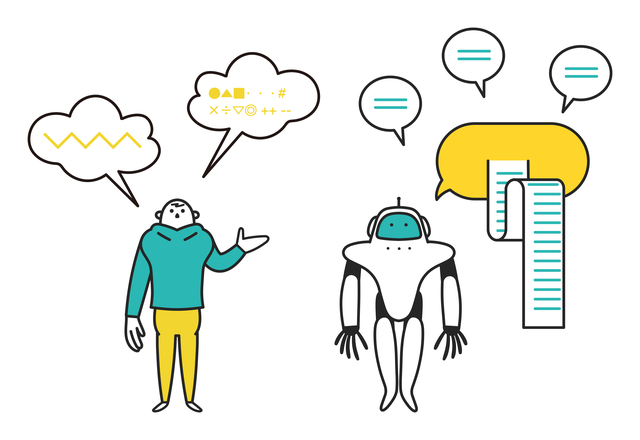It will be one year since ChatGPT appeared in the world in November 2022. The appearance of ChatGPT had a huge impact not only in Japan but also around the world.In particular, the influence it had on the world of education has been enormous.Initially, the position of major countries around the world was against introducing generative AI into education.Against this backdrop, Japan has been turning its attention to the use of generative AI from a relatively early stage, and in July, the Ministry of Education, Culture, Sports, Science and Technology announced guidelines for the use of generative AI.Until now, Japan has been rather negative or not very proactive about introducing new technologies, but it can be said that it is taking a world-leading position when it comes to generative AI.

Generative AI that universities are also interested in
Universities are also showing great interest in generative AI.Since the University of Tokyo announced its policy to students in May, many universities have published policies and guidelines regarding the use of generative AI.As far as I can see, most of them do not prohibit use, but state that you should be careful when using them.In particular, it seems that there are many places that prohibit using the output of generated AI in assignments and reports as it is, as it may be considered fraudulent.
We also urge people to be careful about copyright and security when using the site.Many lectures and exercises are held at universities, but the subjects that are seen to be particularly affected are programming and English (foreign language) subjects.Since both are subjects related to language (programming is called an artificial language), it is natural that they are compatible with AI that outputs language.
In the course of learning programming, the generation AI seems to be making use of functions such as correcting errors in the program, or filling in the rest by filling in part of the program.Since generative AI has been widely introduced in actual software development sites, its use in this field is likely to accelerate in the future.
English classes and generative AI
So, what is the current situation with English classes and generative AI?Currently, there are not many universities or departments that are actively implementing this system.Most universities seem to be exploring how they can utilize it going forward.In this situation, Ritsumeikan University's College of Life Sciences is an institution that is actively trying to utilize generative AI in English classes.By incorporating AI technology into project-based English classes, we aim to improve the accuracy of output.
Over the past year, English teachers who actively utilize generative AI have accumulated a considerable amount of know-how regarding the use of generative AI.An effective way to use this is, for example, to have a generative AI correct an English sentence written by a student, and then have the AI explain how it corrected it.Up until now, English texts written by students had to be viewed by English speakers or instructors, but with the advent of a third option (and available 1 hours a day), the scope of learning could be greatly expanded. It came out.

Concerns about generative AI
Although there are positive aspects to the use of generative AI, there are naturally concerns.In fact, it seems that the usage of translating English directly into Japanese (and conversely, translating Japanese into English), as was initially feared, is not becoming widespread.Instead, a future problem is thought to be a widening gap between those who can use generative AI well and those who cannot.As mentioned above, if you use generative AI well, you will be able to progress in learning English on your own, while those who do not use it or cannot use it will remain the same.In addition, to learn English using generative AI, you need to have enough English skills to understand the English output by the AI and sometimes notice mistakes.
In other words, people who have English proficiency and can learn English using generative AI will be able to further improve their English proficiency in the future.Additionally, by using generative AI, you will be able to import more and more information in English and transmit it in English.As a result, the gap between them and those who cannot use generation AI well or who lack English skills is widening.Creating a system that allows as many students as possible to participate in the virtuous cycle of English learning using generative AI is likely to be the key to English education in the future.
Make good use of generative AI to improve your own abilities
The development of generative AI will never stop.Utilizing this technology will also be of great help to Japanese universities in promoting internationalization.By lowering the language barrier through generative AI, we will be able to increase international dissemination and acceptance, and make it possible to further promote personnel exchange.By acquiring English skills adapted to the age of generative AI, students will also be able to survive in the post-corona era globalization era.Rather than relying on generative AI, we need to steer ourselves so that we can improve our own abilities by effectively utilizing generative AI.

Associate Professor, Institute of International Higher Education, Kyoto University
Mr. Toshiyuki Kanamaru
Doctorate from Kyoto University (Human and Environmental Studies).His specialties are foreign language education (English and Japanese) and theoretical linguistics (cognitive linguistics and corpus linguistics).He is engaged in educational research on language research and language education using corpora and ICT. In 2015, he developed the "International Language Practical Education System (GORILLA)", and from the following 2016, he has been involved in the implementation and management of a curriculum using GORILLA's e-Learning under a unified syllabus for Kyoto University's common English subject.
Graduated from Oita Prefectural Oita Uenogaoka High School.

